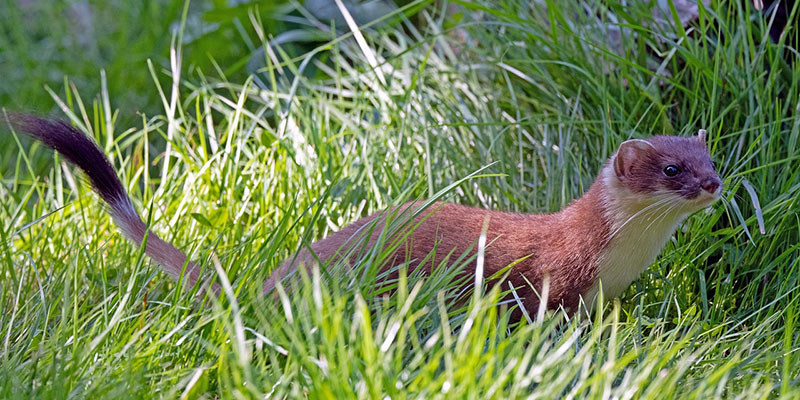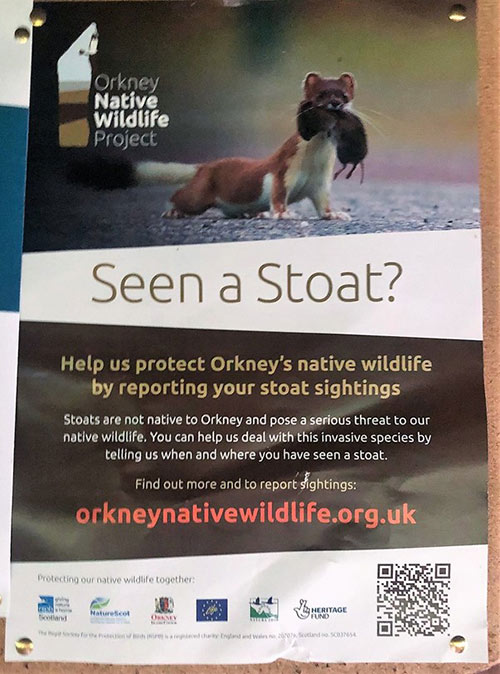Stoat on a boat?
Introduced species are often a complex and contentious issue. Jack Hatfield discusses the case of stoats on the Orkney Islands.

Many people in the UK may have never seen a stoat, but they are present throughout mainland Britain and some of the islands, now including Orkney. How they got there is unclear, but stoats were first seen in Orkney in 2010 and are considered a major threat to the native wildlife with action being taken to eradicate them from the islands. So why are they seen as such a problem?
Well, many people may know Orkney because of its wealth of Neolithic sites, but the Neolithic Orcadians did more than just build enough structure to keep generations of archaeologists busy, they also appear to have brought common voles to the islands. Common voles are not found on the British mainland and are considered an introduced species. Stoats eat voles, so is this a case of stopping one introduced species to save another?
Stoats do in fact have previous, being classed in the worst 100 invasive species globally, with evidence of their devastating impacts on birds in New Zealand. Ironically, the New Zealand stoats themselves were introduced to control rabbits (a species also introduced on Orkney). The predicted impact on Orkney birds from the introduced stoats is two-fold. Firstly, they are known to predate ground nesting birds. Secondly, the predicted reduction in vole numbers will negatively impact raptors such as hen harriers, which rely on the voles for food. But won’t any reduction in voles also impact the stoats? Maybe not. Introduced rats and rabbits are likely to provide enough alternate food for the stoats when voles become rare.
You can see how this gets complex quite quickly. This is without even thinking about how the voles have been impacted by other factors, such as changing farming practices and predation by cats and dogs. In this case, removing the stoats before they spread is likely the pragmatic choice, but it does go to show how complex things can be when you have to pick and choose between species gains and losses.

Orkney Native Wildlife poster asking the public to report stoat sightings (photo credit: Nick Blyth)
Related links
- Find out more about Jack Hatfield's research.
Related links
- Find out more about Jack Hatfield's research.